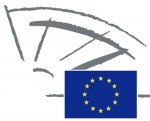 New rules to help businesses obtain legal redress against the theft or misuse of their trade secrets were informally agreed by Parliament and Council negotiators on Tuesday. MEPs ensured that freedom of expression and information will be protected and that the new rules will not restrict the work of journalists.
New rules to help businesses obtain legal redress against the theft or misuse of their trade secrets were informally agreed by Parliament and Council negotiators on Tuesday. MEPs ensured that freedom of expression and information will be protected and that the new rules will not restrict the work of journalists.
“The agreement reached today with the Council faithfully reflects the balanced position that we, MEPs on the legal affairs committee, adopted by a very large majority. Our priorities have been met in full by the Council: protection of the fundamental freedoms of opinion, of expression and of the press, which concerns both journalists and whistleblowers, and preservation of workers’ mobility,” said the rapporteur, Constance Le Grip (EPP, FR).
The rules will introduce an EU-wide definition of trade secrets and oblige member states to ensure that victims of the misuse of trade secrets will be able to defend their rights in court and seek compensation. The agreed text also lays down rules on the protection of confidential information during litigation.
Safeguarding freedom of expression and information
Throughout the negotiations, MEPs stressed the need to ensure that the legislation does not curb the freedom and pluralism of the media or restrict the work of journalists, in particular with regard to their investigations and the protection of their sources.
Under the agreed rules, victims of the theft or misuse of trade secrets will not have the right to redress if a trade secret was acquired, used or disclosed for the following purposes:
-
to exercise the right to freedom of expression and information as set out in the EU Charter of Fundamental Rights, including respect for freedom and pluralism of the media;
-
to reveal misconduct, wrongdoing, fraud or illegal activity, provided that the respondent acted in order to protect the general public interest (such as public safety, consumer protection, public health or environmental protection);
-
to protect a legitimate interest, recognized by European Union or national law;
-
the trade secret was disclosed by workers to their representatives as part of the legitimate exercise of their representative functions in accordance with EU or national law, provided that such disclosure was necessary for that exercise.
No unjustified barriers to workers’ mobility
MEPs also ensured that the rules will not create unjustified barriers to workers’ mobility by clarifying that the rules will not limit employees’ use of the experience and skills honestly acquired in the normal course of their employment. These rules should not impose any additional restrictions on employees in their employment contracts other than in accordance with EU or national law, the agreed text says.
Next steps
The informal deal, agreed by the Parliament and Council negotiators on Tuesday, now needs to be endorsed by the legal affairs committee and the full House as well as by the Council of the European Union.
Background
According to the agreed rules, “trade secret” means information which is secret, has commercial value because it is secret, and has been subject to reasonable steps to keep it secret. The new rules set minimum requirements for legal redress so that any member state may provide for more far-reaching protection against the unlawful acquisition, use or disclosure of trade secrets if it wishes to do so as long as it respects the safeguards set in the directive.
EP Press release


















